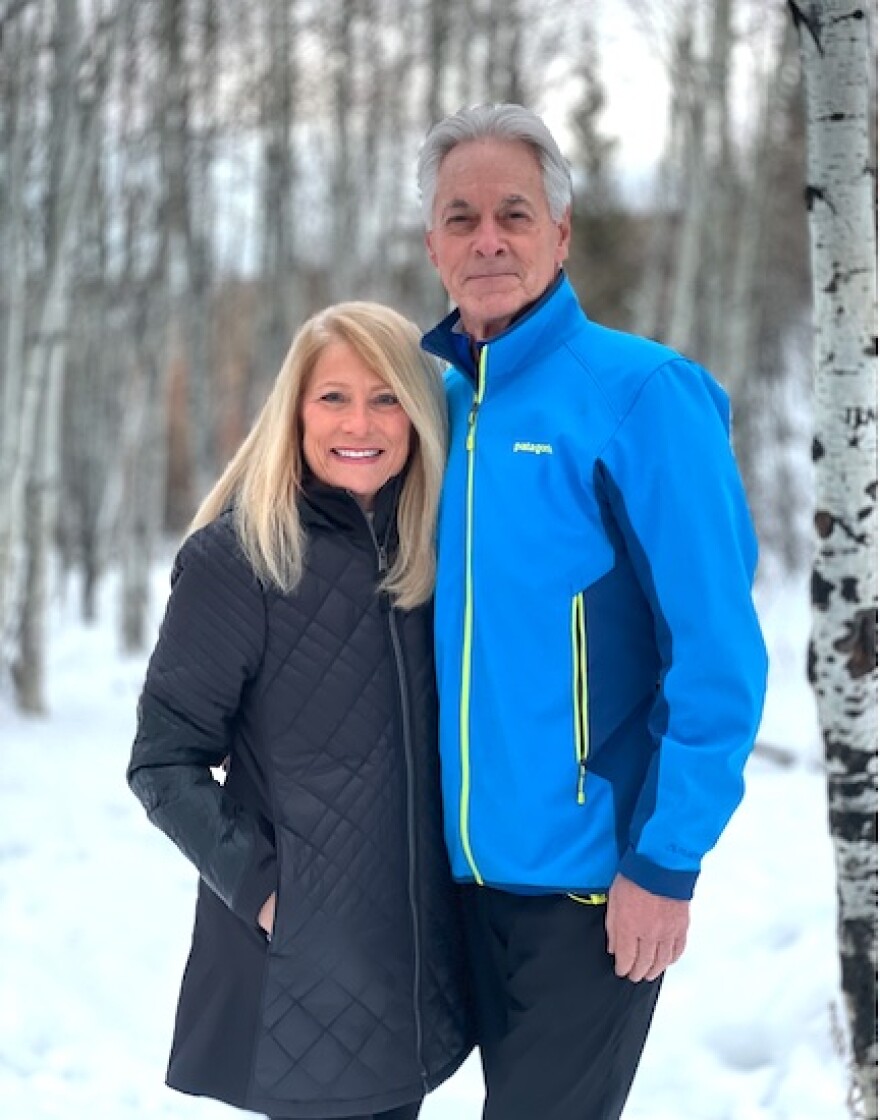By all appearances, Kay Harrison has a good life. Married for 48 years with four children, she is a fit, vibrant and successful businesswoman. But even as a child, she had bouts of anxiety and depression.
A self-described perfectionist, she kept her demons at bay as she coped with her daughter’s terminal illness and her 12-year-old son’s cancer diagnosis. It wasn’t until she worked in hospital management in Southern California in 2016 that she said the pressure became so debilitating that depression and anxiety hijacked her mind.
“That's when I decided I just couldn't stand to live anymore as depression and anxiety took over," said Harrison. "Some people believe that it's a very selfish act when someone tries to die by suicide, but in reality, my mind–as are many others–is that everyone will be better off without us.”
It was her husband Lex who found her when he came home early from work. She was rushed to the hospital – the same place where her work life had imploded. But she said it was when she was transferred to the psychiatric unit in a behavioral hospital four days later when the light started to return.
“As strange as this sounds, I was stripped of all my titles and my pride was gone," she said. "And it was probably the best thing that happened to me. And that's when I realized that I wanted to live and I wanted to get better. And I did everything I could within those five days in the psychiatric hospital to start healing.”
Part of that journey was moving to Park City. In California, Harrison said she felt that no one would understand her struggles. But in Utah, she found a therapist, the right medication, a healthier lifestyle and started writing. Last year, she published the book “Lived to Tell: Thriving After Suicide Attempt.”
Summit County Director of Behavioral Health Aaron Newman said according to the soon-to-be-released Utah Suicide Death Surveillance Report, Utah has fallen out of the top 10 states for suicide rates and is now in 14th place.
“However, that's not as positive as it sounds," he said. "We've actually continued to increase in the number of suicides in the state of Utah. The issue is just the states around us, unfortunately, have had a greater increase. We're now starting to follow that increase.”
Newman said suicide prevention resources for students include the SafeUT app and Hope Squad’s youth-based coalitions in the schools. Those in crisis can call or text the National Mental Health Crisis Line at 988.
Firearms are the number one method Utahns use when taking their life. The Legislature recently passed a bill for suicide prevention efforts that funded the purchase of gun safes for three years. These free safes will be available Sept. 25 at the Summit County Health Departments in Park City, Kamas and Coalville, the Park City Sheriff's office, the Park City Gun Club and the D&J Gun Shop.
The Wasatch County Health Department also received funding from the state, and requires anyone who wants a $200 voucher to purchase a free safe to take QPR (Question, Persuade, Refer) training that teaches the warning signs of suicide and how to potentially save a life.
Summit County will not require this training to obtain a gun safe but Newman said he strongly recommends people enroll in this course at the health department.
“Approximately 60% of individuals who have died by suicide tried to reach out to someone; they tried to communicate that they were feeling that this [suicide] is the solution they needed to look at," he said. "So, working with people, getting them to ask the really uncomfortable question–this training is key in providing that confidence to individuals. ”
Harrison is a different person today. She said in addition to therapy and medication, she is active in the outdoors, prays, let go of toxic relationships, practices forgiveness and openly discusses her triggers with her loved ones.
“I tell people I'm probably the most healthy mentally-ill person that they know because I am at the most peace," she said. "I have the most joy. And I have the most gratitude that I've ever had in my life and, and giving gratitude every day is very important.”
Because if there is one important message during Suicide Prevention Month, it is that every life is worth living.


